Gary Kerr named senior director of military and veteran affairs
Park University’s connection with military students drew the attention of Gary Kerr, a recently retired United States Army lieutenant colonel. After spending more than 23 years in the Army, including multiple trips overseas, Kerr has found a passion for helping military students at the collegiate level and is excited to be at Park.
On March 16, Park University announced Kerr’s appointment as senior director of military and veteran affairs. According to the press release, Kerr’s responsibilities will include building a community of partnerships for military, veteran and dependent students.
Kerr spent the last four years of his career in the Army at the University of Missouri as a professor of military science and leadership. He not only served as faculty, but he also oversaw the Army ROTC program at the university.
Kerr worked to get the ROTC students involved with events on campus and facilitated opportunities for them to work with other students outside of the military programs.
This is something he hopes to continue at Park, as it is a large partner of the United States military.
“I am working with our department of military science, our ROTC guys here at Park, and I am kind of exploring what they need,” Kerr said. “I’ve got more ideas than they can probably handle, but I am going to help them get to their goal.”
During his time at the University of Missouri, Kerr was able to build a network of approximately 1,500 alumni. This network allows alumni to connect with each other and with students at the university.
Kerr found this to be a really important mission, because it opened up many opportunities for both alumni and students to network and find jobs or internships. This network also created opportunities for the alumni to give back to the campus, and gave them the typical alumni experience, something that not every student gets.
Many military students at Park take classes all over the world, some never having the chance to visit the flagship campus. Kerr believes this is an important experience for alumni.
“What I would really love to be able to do is create alumni programs for Parkville military-affiliated graduates and pull them back into Parkville,” Kerr said. “Because a lot of them were all over the world when they were taking classes, but I want to pull them into the main campus, the flagship, to give them that same alumni feeling.”
Kerr plans to reintegrate the military and veteran students that were not able to attend the flagship campus for classes into the campus life that military alumni could lead.
He plans to create more events and other opportunities for the military alumni to be involved on campus and with students.
“I think that we can hold events and invite alumni in, start talking to our alumni and sending them updates as to what’s going on,” Kerr said. “We can highlight them and honor them, because a lot of our alumni have just done amazing things with their lives.”
An alumni network can be very beneficial for a university, Kerr explains, because it allows for mentorship to take place between the alumni and students.
“Maybe they are out of the military now, and they are running some successful corporation and now they have some great opportunities, and we can tie those opportunities back to our students through mentorship programs—which we are already doing and doing a great job of,” Kerr said.
Creating opportunities for members of the military community is something important to Kerr, as he comes from a military family himself.
“Growing up I was an Army brat,” Kerr said. “I lived in eastern Pennsylvania for about eight years, and then we migrated to Ohio my junior year of high school.”
After high school Kerr attended The Ohio State University where he earned a degree in military history in 1997 and earned his commission in the Army.
Kerr went into the Army as a second lieutenant and spent his first duty assignment in South Korea, as a scout platoon leader. From there he bounced around a few different domestic bases to further his education.
Eventually, Kerr ended up in Fort Carson, Colorado, and took command of a cavalry troop in the 3rd cavalry regiment. Then, in 2003, Kerr deployed around 250 troops to Iraq during the second phase of the United States’ initial invasion.
“I spent about a month in Fallujah, and then I was pushed out to Haditha, which is about 200,000 people,” Kerr said. “I was in command of the city, so I had to figure out how to reestablish governance, how to reestablish security, how to get their infrastructure up and running.”
Once he returned to the states he served as an advisor to the Army National Guard for around 18 months, and then returned to Iraq as a combat advisor.
“It was interesting because I was on a nine-man team living with 500 Iraqis—you know the language barriers and the cultural barriers,” Kerr said. “I just really loved to learn and be part of the Iraqi culture, and the people, and really embrace what we were doing.”
In 2013, after his second tour to Afghanistan, Kerr found himself in Fort Leavenworth, Kansas, training soldiers. Kerr also decided to pursue his education further and graduated from the Command General Staff College at Fort Leavenworth in 2009.
He immediately deployed to Afghanistan as a calvary squadron executive officer in the 82nd airborne division. After spending some time there, Kerr eventually came back to the U.S., but was deployed to Afghanistan another time.
In many of his roles throughout his career, Kerr has been tasked with facilitating strategic conversations, managing projects and missions and exercising problem solving—all strengths that led him to working in universities.
“I chose to be a professor of military science because I wanted to have a long-term impact on the Army,” Kerr said. “I knew that if I could train those that are going to become our young officers, the impact of that would be 30 years down the road.”
Kerr said looks forward to his time at Park, and the opportunities he has to impact military, veteran and dependent students.
“It was something that was so rewarding for me, knowing that I’ve left my mark not just on the Army, but the Army for the future,” Kerr said.
Your donation will support the student journalists of Park University. Your contribution will allow us to cover our annual website hosting costs, freeing up other funds for equipment, printing and training.



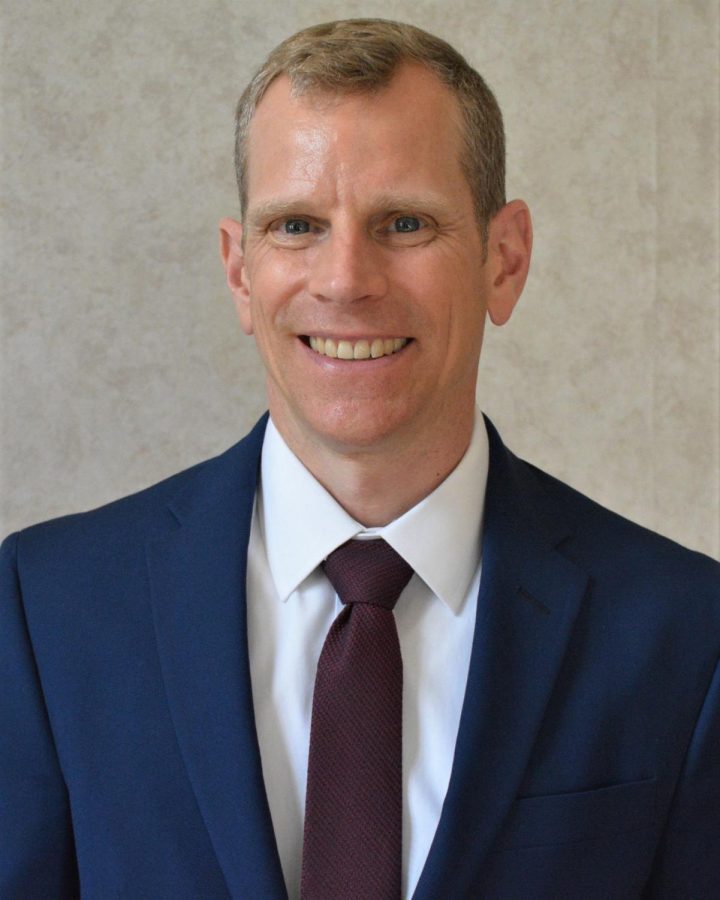
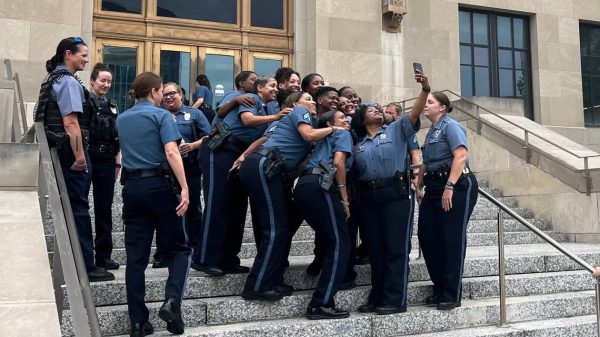
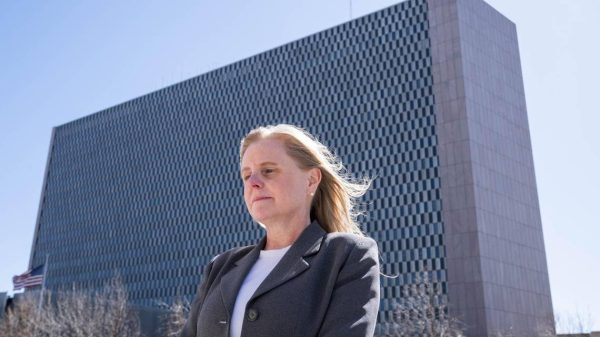
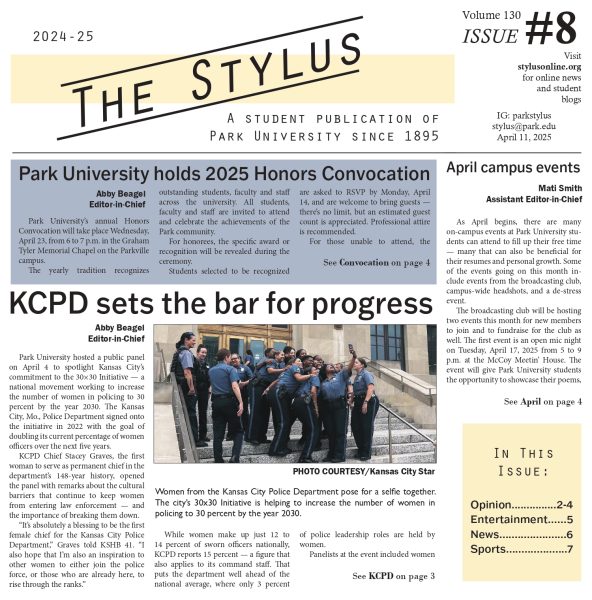
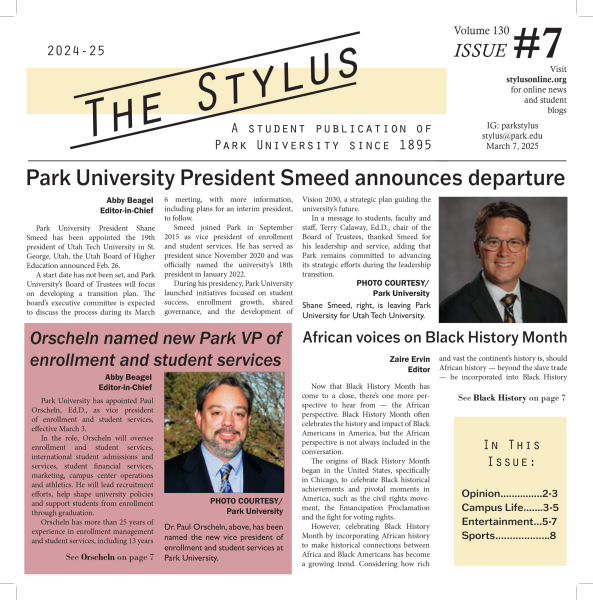
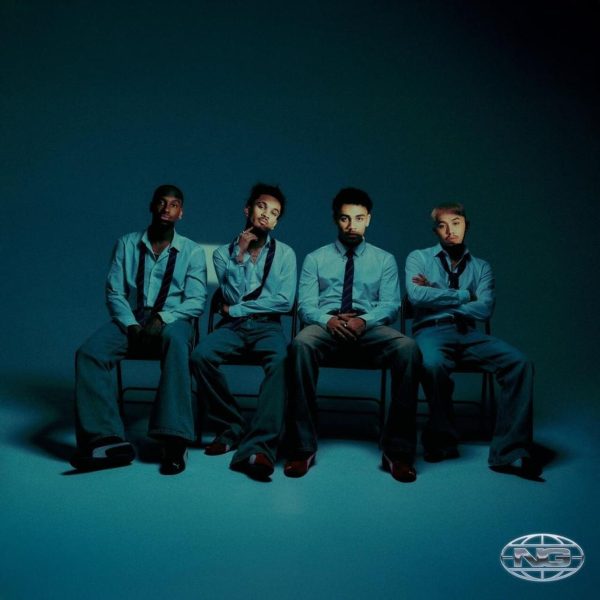
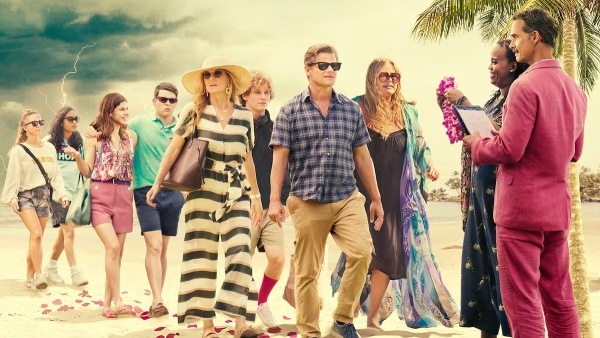
Brian Mitchell PS AROTC • Feb 7, 2025 at 10:36 am
Gary, goto Soundcloud, TheBEEof73.
“To DAV, God Bless” and “My Corderoyce”